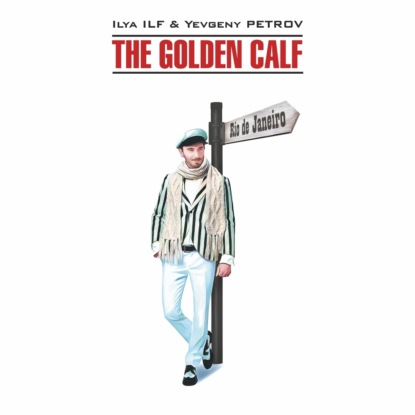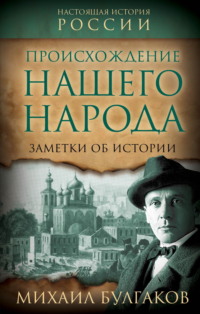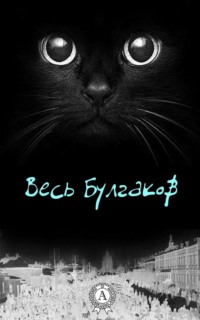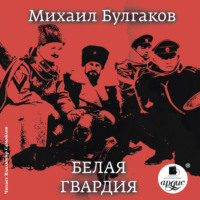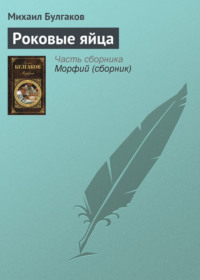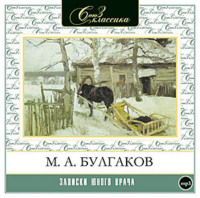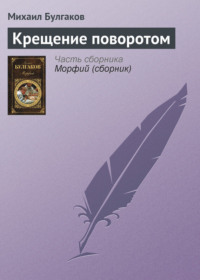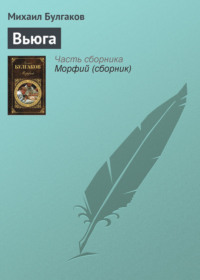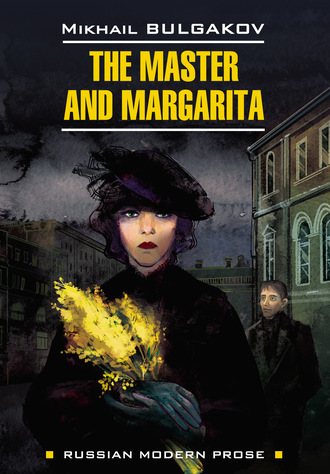
Полная версия
The Master and Margarita / Мастер и Маргарита. Книга для чтения на английском языке
It only remained to dictate this to the secretary.
The swallow’s wings crackled just above the Hegemon’s head, the bird sped towards the bowl of the fountain and flew out to freedom. The Procurator raised his eyes to the prisoner and saw there was a column of dust suddenly ablaze beside him.
“Is that all there is about him?” Pilate asked the secretary.
“Unfortunately not,” the secretary replied unexpectedly, and handed Pilate another piece of parchment.
“What else is there?” asked Pilate, and frowned.
After reading what had been handed him, he changed countenance[79] still more. It may have been that dark blood had flooded into his neck and face, or something else may have happened, but his skin lost its yellow tinge, grew brown, and his eyes seemed to sink.
And again it was probably the fault of the blood which had flooded into his temples and begun pounding inside them, only something happened to the Procurator’s vision. And so it seemed to him that the prisoner’s head had floated off somewhere, and another had appeared in its place. On this bald head sat a sparsely toothed golden crown[80]. On the forehead was a round sore that was eating away at the skin and was smeared with ointment. A sunken, toothless mouth with a wilful, drooping lower lip. It seemed to Pilate that the pink columns of the balcony and the roofs of Yershalaim down below in the distance, beyond the garden, had disappeared, and everything around them was submerged in the dense, dense verdure of the gardens of Capreae. Something strange had happened to his hearing too – trumpets seemed to be sounding in the distance, low and threatening, and a nasal voice could be heard quite distinctly, haughtily drawling out the words: “The law of lese-majesty…”
His thoughts raced – brief, incoherent and extraordinary. “He’s done for[81]!” Then: “We’re done for!” And among them was an utterly absurd one about some sort of immortality, and immortality for some reason provoked unbearable anguish.
Pilate tensed, drove the vision out, returned his gaze to the balcony, and before him again were the eyes of the prisoner.
“Listen, Ha-Nozri,” the Procurator began, giving Yeshua a strange sort of look: the Procurator’s face was threatening, but the eyes were alarmed. “Have you ever said anything about the Great Caesar? Answer! Have you? Or… have you… not?” Pilate drew out the word “not” rather more than one ought to at a trial, and sent to Yeshua in his gaze a particular thought which he seemed to want to suggest to the prisoner.
“Telling the truth is easy and pleasant,” remarked the prisoner.
“I don’t need to know,” responded Pilate in a choked, angry voice[82], “if you find telling the truth pleasant or unpleasant. But you will have to tell it. When speaking, though, weigh every word, if you don’t want not only inevitable, but also agonizing death.”
No one knows what had happened to the Procurator of Judaea, but he allowed himself to raise a hand, as though shielding himself from a ray of sunlight, and behind that hand, as behind a shield, to send the prisoner a look with some sort of hint in it.
“And so,” he said, “answer: do you know a certain Judas of Kiriath, and what precisely did you say to him, if you did say anything, about Caesar?”
“It was like this,” the prisoner willingly began recounting. “In the evening the day before yesterday I met a young man outside the Temple who gave his name as Judas from the town of Kiriath. He invited me to his home in the Lower Town and gave me hospitality.”
“A good man?” asked Pilate, and a devilish light glinted in his eyes.
“A very good and inquisitive man,” the prisoner confirmed. “He showed the greatest interest in my ideas, received me most cordially…”
“Lit the lamps…”[83] said Pilate through gritted teeth in the same tone as the prisoner, and his eyes were glimmering as he did so.
“Yes,” continued Yeshua, a little surprised at how well informed the Procurator was, “he asked me to set out my opinion on the power of the state. He was extremely interested in that question.”
“And so what did you say?” asked Pilate. “Or are you going to reply that you’ve forgotten what you said?” But there was already a hopelessness in Pilate’s tone.
“Among other things,” the prisoner recounted, “I said that any sort of power is coercion of the people, and that the time will come when there will be no power, neither of the caesars, nor of any other sort of authority. Man will move on to the kingdom of truth and justice, where no kind of power will be needed at all.”
“And after that?”
“There was nothing after that,” said the prisoner. “At that point people ran in, started tying me up and led me off to prison.”
The secretary was rapidly scribbling the words down on the parchment[84], trying not to miss a single one.
“There has never been in all the world – is not and never shall be – a greater and finer power for the people than the power of the Emperor Tiberius!”[85] waxed Pilate’s cracked and sick voice.
For some reason, the Procurator was looking with hatred at the secretary and the escort.
“And it is not for you, you mad criminal, to deliberate about it!” At this point Pilate exclaimed: “Dismiss the escort from the balcony!” and, turning to the secretary, added: “Leave me alone with the criminal; it’s a matter of state[86] here.”
The escort lifted their spears and, with their metal-shod caligæ[87][88] pounding rhythmically, they walked from the balcony into the garden, and the secretary followed them.
The silence on the balcony was for some time broken only by the song of the water in the fountain. Pilate could see the disc of water swelling at the top of the pipe, its edges breaking off[89]and dropping down in little streams[90].
The prisoner was the first to speak:
“I can see that something bad has happened because of my talking with that young man from Kiriath. I have a premonition, Hegemon, that he will suffer some misfortune, and I feel very sorry for him.”
"I think,” replied the Procurator with a strange grin, "there is someone else in the world you ought to feel more sorry for than Judas of Kiriath, and who will have a much worse time of it than Judas! And so, Marcus the Rat-Catcher, a cold and confirmed butcher; the people who, as I can see” – the Procurator indicated Yeshua’s disfigured face – “beat you for your sermons; the villains Dismas and Gestas, who, with their gang, killed four soldiers; and finally the filthy traitor Judas – they’re all good people?”
“Yes,” replied the prisoner.
“And the kingdom of truth will come?”
“It will, Hegemon,” replied Yeshua with conviction.
“It will never come!” Pilate suddenly shouted in such a terrible voice that Yeshua staggered backwards[91]. Thus, many years before in the Valley of the Virgins, Pilate had shouted to his horsemen the words: “Cut them down! Cut them down. Rat-Catcher the giant’s been caught!” Once more he raised his voice, cracked by commands, yelling out the words so they could be heard in the garden: “Criminal! Criminal! Criminal!”
And then, lowering his voice, he asked:
“Yeshua Ha-Nozri, do you believe in any gods?”
“There’s just one God,” replied Yeshua. “I believe in Him.”
“Then pray to him! Pray as hard as you can! Stills.” – at this point Pilate’s voice sank – “it won’t help. You have no wife?” asked Pilate, mournfully somehow[92], and not understanding what was happening to him.
“No, there’s just me.”
“Hateful city…” the Procurator suddenly muttered for some reason, then flexed his shoulders as if he were cold and rubbed his hands as though washing them. “If you’d been murdered before your meeting with Judas of Kiriath, truly, it would have been better.”
“You could release me, though, Hegemon,” the prisoner unexpectedly requested, and his voice became uneasy. “I can see they want to kill me.”
A spasm distorted Pilate’s face; he turned the inflamed, red-veined whites of his eyes to Yeshua and said:
“Do you suppose, you unfortunate man, that the Roman Procurator is going to release someone who has said what you have said? O gods, gods! Or do you think I’m prepared to take your place? I don’t share your ideas! And listen to me: if from this moment on you utter so much as a word, start talking to anyone, beware of me! I repeat to you: beware!”
“Hegemon…”
“Silence!” exclaimed Pilate, and his furious gaze followed the swallow that had again fluttered onto the balcony. “Come here!” shouted Pilate.
And when the secretary and the escort had returned to their places, Pilate announced that he was ratifying the death sentence pronounced at the meeting of the Lesser Sanhedrin on the criminal Yeshua Ha-Nozri, and the secretary recorded what Pilate said.
A minute later Marcus the Rat-Catcher stood before the Procurator. The Procurator ordered him to hand the criminal over to the Chief of the Secret Service, and at the same time to convey to him the Procurator’s order that Yeshua Ha-Nozri be kept apart from the other condemned men, and also that the Secret Service detachment be forbidden, on pain of severe punishment, to converse with Yeshua about anything whatsoever, or to reply to any of his questions.
At a sign from Marcus, the escort closed up around Yeshua and led him from the balcony.
Next in front of the Procurator appeared a handsome man with a blond beard and eagle’s feathers in the crest of his helmet, with gold lions’ faces glittering on his chest and gold studs on his sword belt, wearing triple-soled boots, laced to the knees, and with a crimson cloak thrown over his left shoulder. This was the legate in command of the legion.
The Procurator asked where the Sebastian Cohort was now. The legate reported that its men were forming a cordon on the square in front of the hippodrome where the criminals’ sentences would be announced to the people.
Then the Procurator gave orders for the legate to detail two centuries from the Roman Cohort. One of them, under the command of the Rat-Catcher, was to escort the criminals, the carts with the instruments of execution and the executioners when they departed for Bald Mountain[93],[94] and when they arrived there, was to form the upper cordon. The other one was to be sent to Bald Mountain straight away, and was to begin cordoning it off[95]immediately. To this same end – that is, to guard the mount – the Procurator asked the legate to send an auxiliary cavalry regiment, the Syrian ala[96].[97]
When the legate had left the balcony, the Procurator ordered the secretary to invite the President of the Sanhedrin, two of its members and the chief of Yershalaim’s Temple guard to the palace, but added as he did so that he would like things arranged in such a way that he could speak with the President in advance[98] and in private before the conference with all of these people.
The Procurator’s order was carried out[99] quickly and precisely, and the sun, which was scorching Yershalaim with an extraordinary sort of frenzy[100] during these days, had not yet had time to approach its highest point when, on the upper terrace of the garden by the two white-marble lions guarding the steps, the Procurator and the Acting President of the Sanhedrin, the High Priest of Judaea, Joseph Caipha, met.
It was quiet in the garden. But, having emerged from under[101]the colonnade into the garden’s sun-drenched upper courtyard with its palm trees on monstrous elephantine legs, whence there opened up before the Procurator the whole of the Yershalaim he hated, with its suspension bridges, forts and, most importantly, the block of marble that beggared all description with the golden dragon’s scales instead of a roof – the Temple of Yershalaim – the Procurator detected with his sharp hearing, far off and down below, where a stone wall separated the lower terraces of the palace garden from the city square, a low rumbling, above which at times there would soar up, faint and shrill, what could have been either groans or cries.
The Procurator realized that there in the square an innumerable crowd of Yershalaim’s inhabitants had already gathered, stirred up by the recent disturbances, and that this crowd was awaiting with impatience the pronouncement of the sentence, and that shouting in its midst were restless water-sellers.
The Procurator began by inviting the High Priest onto the balcony to take shelter from the pitiless heat, but Caipha apologized politely and explained that he could not do that on the eve of the feast. Pilate threw a hood over his slightly balding head and began a conversation. This conversation was conducted in Greek.
Pilate said that he had heard the case of Yeshua Ha-Nozri and had ratified the death sentence[102].
Thus, sentenced to execution, which was to be carried out that day, were three villains: Dismas, Gestas and Bar-rabban – and, in addition, this Yeshua Ha-Nozri. The first two, who had taken it into their heads to incite the people to revolt against Caesar, had been taken by force by the Roman authorities and were in the domain of the Procurator, and consequently they would not be under discussion here. But the latter two, Bar-rabban and Ha-Nozri, had been seized by the local authorities and condemned by the Sanhedrin. In accordance with the law and in accordance with custom, one of these two criminals would have to be set free[103] in honour of the great Feast of the Passover which was starting that day.
And so the Procurator wished to know which of the two criminals the Sanhedrin intended to free: Bar-rabban or Ha-Nozri?
Caipha inclined his head to indicate that the question was clear to him and replied:
“The Sanhedrin requests the release of Bar-rabban.”
The Procurator knew very well the High Priest would reply to him in precisely this way, but his task was to show that such a reply elicited his astonishment.
Pilate did just that with great artistry. The brows on his haughty face rose, and the Procurator looked in surprise straight into the High Priest s eyes.
“I confess, that reply has amazed me,” began the Procurator gently. “I’m afraid there may be a misunderstanding here.”
Pilate explained himself. The Roman authorities were not encroaching in any way on the rights of the local spiritual authorities, the High Priest was well aware of that, but in this instance an obvious mistake was being made. And the Roman authorities did, of course, have an interest in the correction of that mistake.
In truth: the crimes of Bar-rabban and Ha-Nozri were quite incomparable in gravity. If the latter, an obvious madman, was guilty of the utterance of absurd speeches which had stirred up the people in Yershalaim and several other places, the former was much more significantly burdened. Not only had he permitted himself direct calls to revolt[104], but he had also killed a guard during attempts to capture him. Bar-rabban was incomparably more dangerous than Ha-Nozri.
On the strength of all he had set out, the Procurator requested that the High Priest review the decision and leave at liberty the less harmful of the two condemned men – and that, without doubt, was Ha-Nozri. And so?…
Caipha said in a quiet but firm voice that the Sanhedrin had familiarized itself carefully with the case and was reporting for the second time that it intended to free Bar-rabban.
“What? Even after my pleading? The pleading of the man in whose person speaks the power of Rome? High Priest, repeat it a third time.”
“And for the third time I report that we are freeing Bar-rabban,” said Caipha quietly.
It was all over, and there was nothing more to talk about. Ha-Nozri was going away for ever, and there was no one to cure the Procurator’s terrible, vicious pains; there was no remedy for them but death. But this was not the thought that struck Pilate now. It was still that same incomprehensible anguish which had already visited him on the balcony that was permeating his entire being. He immediately tried to explain it, and the explanation was a strange one: the Procurator had the vague feeling there was something he had not finished saying to the condemned man, something he had not finished hearing.
Pilate banished this thought, and it flew away in an instant, just as it had come. It flew away, but the anguish remained unexplained, for it could not possibly be explained by the other brief thought that came in a flash, like lightning, but that was extinguished straight away: "Immortality… immortality has come…” Whose immortality had come? That the Procurator did not understand, but the thought of this mysterious immortality made him turn cold in the full blaze of the sun.
"Very well,” said Pilate, "so be it.”
At this point he looked around, took in at a glance the world that was visible to him, and was amazed at the change that had taken place. The bush laden with roses had vanished, the cypresses that fringed the upper terrace had vanished, as had the pomegranate tree, and the white statue in the verdure, and the verdure itself. In place of it all, some sort of dense crimson mush began floating around, seaweed began to sway about in it and then moved off somewhere, and Pilate himself moved off with it too. Now he was being borne away, smothered and scorched by[105] the most terrible rage – the rage of impotence[106].
“I feel stifled[107],” said Pilate, “I feel stifled!”
With a cold, moist hand he ripped the clasp from the neckband of his cloak, and the clasp fell onto the sand.
"It’s close today, there’s a thunderstorm somewhere,” responded Caipha, not taking his eyes from the flushed face of the Procurator and foreseeing all the trials and tribulations yet to come. "Oh, what a terrible month Nisan is this year!”
"No,” said Pilate, "it’s not because it’s close, I’ve started feeling stifled with you, Caipha.” And, narrowing his eyes, Pilate smiled and added: "Take care of yourself, High Priest.”
The High Priest’s dark eyes flashed, and he expressed surprise on his face no worse than the Procurator had done earlier.
"What am I hearing, Procurator?” replied Caipha proudly and calmly. "Are you threatening me after a judgement that has been pronounced and ratified by you yourself? Is this possible? We are accustomed to the Roman Procurator choosing his words before saying anything. Could anyone have heard us, Hegemon?”
Pilate looked at the High Priest with lifeless eyes and, baring his teeth, gave a semblance of a smile[108].
"Come, come, High Priest! Who can possibly hear us now, here? Do you think I’m like the wandering young simpleton who’s being executed today? Am I a boy, Caipha? I know what I’m saying, and where I’m saying it. The garden is cordoned off, the palace is cordoned off, so that a mouse couldn’t get through a single crack! Not just a mouse, either, even that – what’s his name. from the town of Kiriath – couldn’t get through. Incidentally, do you know such a man, High Priest? Yes… if such a man got in here, he’d feel bitterly sorry for himself – you’ll believe me on that score[109], of course? So be aware then, that you, High Priest, will get no peace from now on! Neither you, nor your people,” and Pilate pointed into the distance to the right, to where the Temple was glowing on high. “It’s I that am telling you this – Pontius Pilate, the horseman of the Golden Lance[110]!”[111]
“I know, I know!” black-bearded Caipha replied fearlessly, and his eyes flashed. He raised his arm up towards the sky and continued: “The Judaic people know you hate them with a fierce hatred and will cause them many sufferings, but you will not destroy them completely! God will protect them! And all-powerful Caesar will hear – he will hear and will shield us from Pilate the destroyer!”
“Oh no!” exclaimed Pilate, and with every word he was finding things easier and easier: there was no need to pretend any more, there was no need to pick his words. “You’ve complained about me to Caesar too much, and now my hour has come, Caipha! Now word will fly from me – and not to the Governor in Antioch, and not to Rome, but direct to Capreae, to the Emperor himself – word of how in Yershalaim you shelter notorious rebels from death! And it won’t be water from Solomon’s Pond, as I wanted, for your benefit, that I’ll be treating Yershalaim to then! No, not water! Remember how, because of you, I had to remove the shields with the Emperor’s monograms from the walls, relocate the troops – I had to come here myself, see, to take a look at what was going on! Remember my word: you’ll see not just one cohort here in Yershalaim, High Priest, no! – the entire Fulminata legion is going to advance right up to the walls of the city; the Arab cavalry is going to come up, and then you’re going to hear bitter crying and moaning. Then you’ll remember this Bar-rabban that was saved and you’ll regret you sent the philosopher with his message of peace to his death!”
The High Priest’s face was covered in blotches[112]; his eyes were burning. He, like the Procurator, bared his teeth in a smile and replied:
“Do you yourself believe what you’re saying now, Procurator? No, you don’t! It wasn’t peace, not peace that this seducer of the people brought to us here in Yershalaim – and you, horseman, understand that very well. You wanted to release him so he would stir up the people, ridicule the faith and deliver the people up to Roman swords! But I, the High Priest of Judaea, while I yet live, will not yield the faith up to profanation and will protect the people! Do you hear, Pilate?” and here Caipha raised his hand menacingly: “Listen carefully, Procurator!”
Caipha fell silent, and again the Procurator heard what sounded like the roar of the sea, rolling up to the very walls of Herod the Great’s garden.[113] This roar rose up from below to the feet and into the face of the Procurator. And behind his back, there, beyond the wings of the palace, could be heard disquieting trumpet signals, the heavy crunch of hundreds of feet, the clanking of iron – here the Procurator realized that the Roman infantry was already setting out in accordance with his order, hastening to the final parade before the deaths of the terrified rebels and villains.
“Do you hear, Procurator?” the High Priest repeated quietly. “Are you really going to try and tell me that all that” – the High Priest raised both arms, and the dark hood fell from his head – “was provoked by the pitiful villain Bar-rabban?”
The Procurator wiped his damp, cold forehead with the back of his wrist and looked down at the ground; then, screwing his eyes up at the sky, saw that the burning hot sphere was almost directly above his head and that Caipha’s shadow had shrunk away completely by the lion’s tail, and quietly and indifferently he said:
“It’s getting towards midday. We got carried away with our conversation, but in the mean time we do need to carry on.”
Having apologized to the High Priest in refined phrases, he asked him to take a seat on a bench in the shade of a magnolia and wait while he summoned the remaining people required for a final brief conference and gave one more order concerning the execution.
Caipha bowed politely, placing his hand upon his heart, and remained in the garden while Pilate returned to the balcony. There he ordered the waiting secretary to invite into the garden the legate of the legion, the tribune of the cohort, and also the two members of the Sanhedrin and the commander of the Temple guard, who were awaiting a summons on the lower terrace of the garden in a circular pavilion with a fountain. To this Pilate added that he would himself be coming out into the garden straight away too, then he withdrew into the interior of the palace.
While the secretary was convening the conference[114], the Procurator had a meeting in a room obscured from the sun by dark blinds with some sort of man whose face was half covered by a hood, though the rays of the sun could not possibly have troubled him inside the room. This meeting was extremely brief. The Procurator said a few quiet words to the man, after which the latter withdrew, while Pilate went through the colonnade into the garden.
There, in the presence of all those he had wished to see, the Procurator solemnly and drily confirmed that he was ratifying Yeshua Ha-Nozri’s death sentence, and he enquired officially of the members of the Sanhedrin as to which of the prisoners they would like to let live. On receiving the reply that it was Bar-rabban, the Procurator said:
“Very well,” and ordered the secretary to enter it in the minutes straight away, squeezed in his hand the clasp that the secretary had picked up from the sand and said solemnly: “It’s time!”


